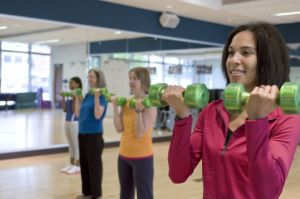News
Danes do more exercise than other EU nations
This article is more than 8 years old.
Country ranks second in a new Eurostat survey, lagging just a bit behind Finland

On average, women in the EU exercise less than men, reveals the survey (photo: Free Stock Photos)
A new Eurostat survey has found that, among the EU countries, Denmark has the second highest proportion of people who spent at least 2.5 hours per week exercising.
Some 53.4 percent of Danes aged over 18 spend at least 150 minutes each week doing some physical activities in their leisure time, including cycling as a form of transportation.
It is more than 23 percent above the EU average (29.9 percent).
Finland tops the EU comparison with 54.1 percent and Sweden ranks third (53.1 percent), while Romania (7.5 percent) and Bulgaria (9 percent) are at the bottom of the ranking.
READ MORE: Danes in rural areas not doing enough exercise
Part of Danish lifestyle
According to Henrik Brandt, the head of the sports analytical centre Idrættens Analyseinstitut, exercise is an inseparable part of the Danish lifestyle and the country has more sports facilities than other EU nations, including a large network of cycling paths.
The Eurostat survey has also found that nearly half (49.8 percent) of the EU population does not do any sport.
Men (34.5) exercise more than women (25.6 percent), and young and highly-educated people do more sports per week than older people or those with low level of education.
The World Health Organisation (WHO) recommends adults aged 18–64 do at least 2.5 hours of moderate-intensity aerobic physical activity (such as brisk walking) per week to improve their cardiorespiratory and muscular fitness, bone health, and reduce the risk of depression.










































